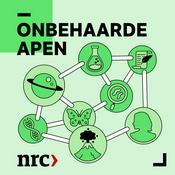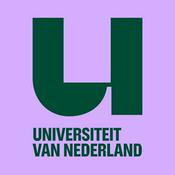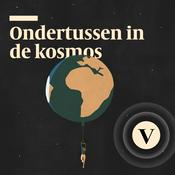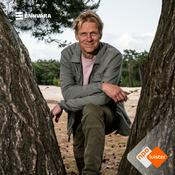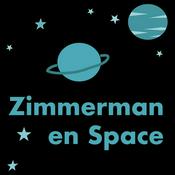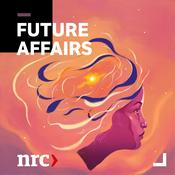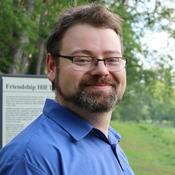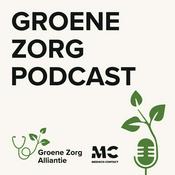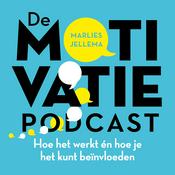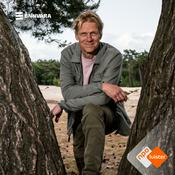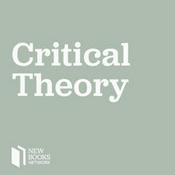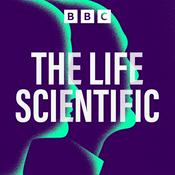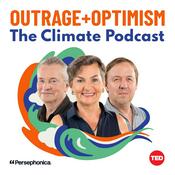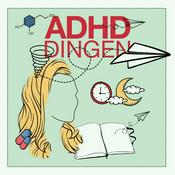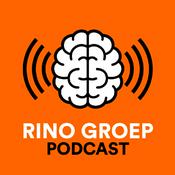The Power Shift: Decolonising Development
Kate Bird
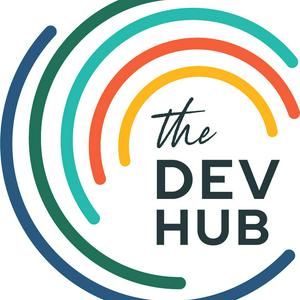
Nieuwste aflevering
48 afleveringen
- In our latest episode we delve into the transformative power of grassroots organisations and the crucial role of trust-based philanthropy in fostering meaningful change. We interviewed Corey Oser, Vice President of Programs at the Global Fund for Children and Effie Ansah from Little Fish Theatre, who share their insights and experiences in navigating the complexities of funding and community engagement. Corey begins by outlining the mission of the Global Fund for Children, which focuses on empowering child and youth-centered organisations through flexible and unrestricted funding. This innovative approach allows organisations to allocate resources based on their unique needs and priorities, ultimately fostering a sense of autonomy and trust. Corey emphasizes that flexibility is not merely a luxury but a necessity for smaller, grassroots organisations, particularly those led by women and youth. Effie Ansah, a facilitator at Little Fish Theatre, adds depth to the conversation by sharing her experiences working directly with young people in various settings. She highlights the importance of arts-based opportunities in engaging youth and facilitating honest conversations about societal issues. Effie's work exemplifies how creativity can serve as a catalyst for personal and professional growth, enabling young individuals to explore their identities and express themselves authentically. Throughout the episode, the discussion touches on the findings of a recent impact study conducted by the Global Fund for Children. This research underscores the significance of trust-based relationships between funders and grassroots organisations. The study reveals that when organisations feel trusted and valued, they are more likely to take bold steps and innovate in their approaches to community engagement. Corey and Effie both talk about the challenges and limitations faced by grassroots organisations, particularly in securing funding that aligns with their missions. They advocate for a shift in the philanthropic landscape towards more inclusive and participatory grant-making practices, where the voices of those directly affected by funding decisions are prioritized
Corey OserCorey Oser leads Global Fund for Children’s engagement with child and youth-centered organisations globally as Vice President of Programs. Her interest in strengthening community wellbeing and human rights at the grassroots level stems from working with community-based and international organisations on issues such as supporting women affected by conflict and war and preventing human trafficking. She is a practitioner of transformative organisational change and creative facilitation and seeks to shift power dynamics in philanthropy and global development. She is the host of the Roots and Sparks podcast, a platform for global changemakers to tell their stories. Corey is a graduate with highest honors from Bates College and holds an MA in International Affairs from George Washington University. She serves as Co-Chair of the Wellbeing Project’s Funders and Wellbeing Learning Group.Effie AnsahEffie Ansah, Little Fish Theatre facilitator and GIS Report Researcher Effie is an actor, writer, and creative freelancer working broadly across theatre. With a background in youth and community work, she is passionate about bringing arts-based opportunities to communities that often face barriers to accessing the arts. She believes that creativity is a key to unlocking progressive growth in both personal and professional development and brings this perspective into spaces ranging from corporate environments to educational settings. Effie has worked for over four years with Little Fish Theatre as a facilitation practitioner.
If you’re interested to find out more about Corey Oser & Effie Ansah work, take a look here:
Corey Oser
Web - In our latest episode, we interviewed Niharika Srivastava, an international development professional from India who specialises in evaluations and research. She has moved from the corporate world to impactful work in development and with a rich background in community theatre, economics and a passion for participatory learning, Niharika shares her insights on the critical role of context in development practices. She emphasizes that effective development work cannot be a one-size-fits-all approach. Instead, it requires a deep understanding of the unique challenges and opportunities present in each context. Sharing her experiences across Africa and Asia she highlights the necessity of unlearning and relearning to ensure that solutions are tailored to the specific needs of communities. Niharika advocates for use of local knowledge and experiences in creating equitable and effective programmes that truly reflect the needs of those it aims to serve. Throughout the episode she shares practical steps for professionals in the sector, urging them to engage with local communities and understand the political economy that shapes development agendas. Her insights serve as a powerful reminder that at the heart of global development lies the need for collaboration, respect, and a commitment to social justice
If you’re interested to find out more about Niharika Srivastava’s work, take a look here:
LinkedIn
Instagram
A suggested reading for the audience:
Reading
“Big Aid Is Over” – Kevin Starr (SSIR, 2025)A provocative essay on why the era of large-scale donor-driven aid is ending. Starr argues that governments in the Global South must own and finance solutions that are affordable, scalable, and context-specific – challenging one-size-fits-all aid models and pushing forward localisation and sustainability. Read here.
Listening
Interventions from the Global South (Podcast) brings together activists, community organisers, change makers, and intellectuals from/of the Global South to imagine registers for theorising communication and co-creating transformative practices that address inequalities, climate change, depleted democracies, and the precarity of labour. Drawing inspiration from the Non-Aligned Movement and communication rights movements, it foregrounds Southern concepts of solidarity, resistance, and Indigenous knowledge systems.
DevHub Podcast - Disrupting the Development Sector from the Global South.
In this episode, Priyanthi Fernando (IWRAW Asia Pacific) speaks about her ‘disruptive’ approach to development, continuously asserting Global South perspectives and challenging entrenched power dynamics. A great complement to ongoing debates about decolonising aid and shifting power within the sector. The power of community engagement in co-creating durable solution. Florence Ringe Interviewed
26-6-2025 | 49 Min.In this week’s episode, we interviewed Florence Ringe Executive Director of Prince of Peace Orphans and Widows Vision(POPOW), a grassroots organization working across Kaberamaido, Kalaki, and Amolatar Districts of Teso and Lango sub-regions in North Eastern Uganda. Florence’s talks of the importance of engaging the community in understanding the unique needs of particular communities rather than imposing external solutions that might end up not being sustainable.
Education being a critical area of focus, Florence mentions challenges faced by children in accessing quality education. Many children walk long distances to school, and the infrastructure often fails to support their educational needs, but POPOW Uganda is working to promote safe learning environments and provide essential resources to families.
Florence also shares inspirational stories of transforming the lives of young men involved in criminal behavior through sports and community service. By providing opportunities for positive engagement, the young men have become protectors of their communities, demonstrating the power of change when given the right support.
If you’re interested to find out more about Florence Ringe’s work, take a look here:
X (Twitter)
Facebook
Tiktok
YouTube
Website
A suggested reading for the audience:
“Every story of hope and desired change blooms through the power of giving. Your selfless acts of kindness and generosity create a huge impact in the lives of the marginalized individuals. This is who we are as POPOW. It is a powerful reminder that we all have the ability to make a difference in the rural, unprivileged communities. Choose to show someone kindness today!”Unpacking how identity manifests in racialised bodies through feminist approaches. Kenza Ben Azouz interviewed.
06-2-2025 | 33 Min.In this week’s episode, we interview Kenza Ben Azouz, gender expert trained in feminist research and anthropology from Tunisia, and the newest addition to the Dev Hub team. Kenza tells us about feminist culture of care and the importance of rest in order to be able to reflect and act differently.
Kenza draws on Black feminism and Global South feminist scholars to contextualise the complexities of intersectional identities. We also discuss imposter syndrome and how it manifests in racialised bodies.
Kenza also talks about her lived experience as a French Tunisian woman, and how race and identity interact in her self-perception and her activism.
Kenza Ben Azouz is a gender expert trained in feminist research and anthropology from Tunisia. She has worked with various human rights and development organisations (both grassroots and international) across West and North Africa and South West Asia. Her work has mostly focused on gender-based violence, systemic racism, and structural development challenges. Kenza holds a BA in political science and philosophy from McGill University (Montreal, Canada) and a MA in social anthropology of development from SOAS University (London, UK). Kenza is also a Yoga teacher and contemporary dancer.
If you’re interested to find out more about Kenza's work, take a look here:
LinkedIn
Recent work:
EuroMed Rights. 2024. Turning the tide – Key learnings and strategic path for navigating anti-gender backlash in the euro Mediterranean region.
Human Rights Watch. 2022. “So What If He Hit You?” Addressing Domestic Violence in Tunisia.
Recommended resources:
Lorde, Audre. 1978. Uses of the Erotic: The Erotic as Power.
Lauter, Estella. 2006. “Audre Lorde's Refiguration of Eros,” Re-Visioning Creativity.
Emergent Wisdom. Eros, Violence and the Body Without Organs (Podcast) Featuring Palestinian activist A'ida Shibli.
Love and Philosophy. Paths of Power and Paradox with Minna Salami, author of sensuous knowledge.
EISA Podcast. What is... Love and Care in International Relations? with feminist anthropologist Professor Roxani Kristalli
Tuck, Eve, and K. Wayne Yang. 2012. Decolonisation is not a metaphor. Decolonization: Indigeneity, Education & Society Vol. 1, No. 1, pp. 1-40.
Peace Direct. 2023. The Nine Roles that Intermediaries can Play in International Cooperation.Community-centred approach to humanitarian work. Rachel Kiddell-Monroe interviewed.
16-1-2025 | 47 Min.In this week’s episode, we talk to Rachel Kiddell-Monroe, founder of the SeeChange initiative, which seeks to take a stand in the humanitarian sector and centre communities in a decolonised approach.
Rachel tells us about taking a community-centred approach to humanitarian work which is built around connection, engagement, co-design, and reflection. They have developed practical, open-source frameworks to incorporate the needs of the communities they work with.
Rachel emphasises the importance of not only personal reflection, but also taking a stand and speaking up in spaces of privilege, acknowledging that there is a risk.
Rachel Kiddell-Monroe is an activist, lawyer, and humanitarian who has worked for many years in leading positions for Doctors Without Borders/Médecins Sans Frontières (MSF).She also founded the student-led group Universities Allied for Essential Medicines and is a Professor of Practice at McGill University in Montreal, Canada where she leads a course on Decoloniality and Humanitarian Action.
In 2018, Rachel founded SeeChange, a Canada-based social purpose organization that works to impact humanitarian organizations to shift to a more community-centered approach, contributing to a decolonization of the sector. SeeChange and MSF cooperated on a successful 'CommunityFirst' pilot project in which MSF teams co-created health strategies with affected communities in several countries.
SeeChange also uses this community-centered approach in its work with Inuit communities in the Canadian Arctic region, where the organization supports TB and mental health initiatives that are co-created with the community. In recognition of her work in this field, Rachel was appointed an Ashoka Fellow in 2023.
If you’re interested to find out more about SeeChange, take a look here:
Website
LinkedIn
Facebook
Instagram
Twitter (X)
Substack
Recommended resources:
SeeChange’s CommunityFirst Tools
CommunityFirst Framework
Participatory Monitoring, Evaluation, Accountability and Learning (PMEAL) Toolkit
Video about CommunityFirst pilot project with MSF
SeeChange’s Decoloniality Resources
SeeChange’s Decoloniality Charter
D-DEI Resource Garden
Meer Wetenschap podcasts
Trending Wetenschap -podcasts
Over The Power Shift: Decolonising Development
The Power Shift: Decolonising Development podcast brings together activists, practitioners and thinkers to join a wide-ranging conversation on decolonisation, where they share ideas and identify tools for practical action. If you’d like to know more about decolonising development – and what it means in practice, or you would love to change the way you do your work in the development sector, then this is the right place.
Podcast websiteLuister naar The Power Shift: Decolonising Development, NRC Onbehaarde Apen en vele andere podcasts van over de hele wereld met de radio.net-app

Ontvang de gratis radio.net app
- Zenders en podcasts om te bookmarken
- Streamen via Wi-Fi of Bluetooth
- Ondersteunt Carplay & Android Auto
- Veel andere app-functies
Ontvang de gratis radio.net app
- Zenders en podcasts om te bookmarken
- Streamen via Wi-Fi of Bluetooth
- Ondersteunt Carplay & Android Auto
- Veel andere app-functies


The Power Shift: Decolonising Development
Scan de code,
download de app,
luisteren.
download de app,
luisteren.

